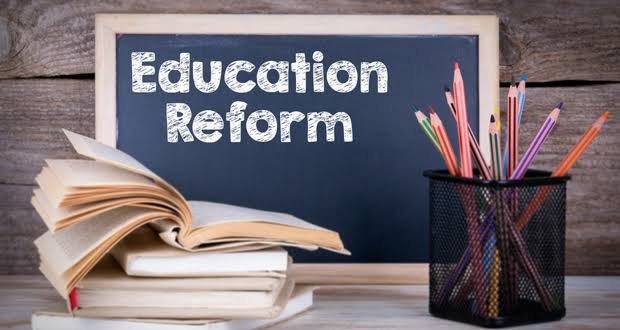Amid our rapidly evolving global society, the call for education reform has never been louder or more urgent. It represents not merely a set of policy changes but a comprehensive reform movement aimed at overhauling the education system to better meet the needs of today’s learners and tomorrow’s leaders. This transformative journey seeks to address the critical facets of school reform, from early childhood education to the intricacies of secondary school and beyond, ensuring that the education system reform movement creates a lasting impact on school education and digital education alike.
The Legacy of Educational Reformers: From Horace Mann to Modern Visionaries
The roots of educational reform in the United States trace back to visionaries like Horace Mann, often hailed as the father of the American public school system. His advocacy for a public education system accessible to all children laid the groundwork for the modern reform movement. Today, this movement continues to evolve, with reformers focusing on teacher training, effective education practices, and education policy to ensure high-quality learning experiences.
Tackling Challenges Across the Education Spectrum
Early Childhood: Laying the Foundation
Early childhood education is recognized as a critical period for a child’s development. Efforts to reform this sector focus on integrating care and education to provide a holistic approach to nurturing young minds. The Elementary and Secondary Education Act and the Education for All Handicapped Children Act underscore the nation’s commitment to quality education for all children, regardless of their circumstances.
Digital and School Education: Adapting to the Digital Age
The integration of digital education into the school system marks a significant shift towards modernizing school education. This transformation ensures that students are prepared to navigate the complexities of the modern world, fostering student achievement through innovative teaching and learning methods.
Teacher Training and Professional Development
The effectiveness of education reform heavily relies on the quality of teacher training and professional development programs. By equipping educators with the latest pedagogical strategies and technological tools, the reform movement aims to enhance the education system reform effort, ensuring that teachers can meet the diverse needs of their students.
The Impact of Legislation on Education Reform
Legislative milestones, such as the Higher Education Act and the Bilingual Education Act, along with education monitoring by bodies like the Board of Education and the Department of Education, have played pivotal roles in shaping the course of education reform. These acts, along with the Civil Rights Act and the No Child Left Behind Act, reflect the nation’s dedication to creating educational opportunities for all, emphasizing the quality of education over mere access.
The Future of Education: Embracing Global Challenges
As we look to the future, the education reform movement must continue to adapt, embracing global perspectives and sustainable development goals to prepare students for the challenges of the 21st century. The national education landscape is being reshaped to provide quality education that is inclusive and comprehensive, from primary education to university education and beyond.
The Role of National and State Education Boards
National and state education boards play a critical role in curriculum development and the implementation of reform initiatives, aiming to improve the quality of education across various levels. By fostering a comprehensive education system that promotes equal access and high-quality education, these bodies are essential to the ongoing education reform efforts.
Conclusion: The Ongoing Journey of Education Reform
Education reform is an ever-evolving journey, influenced by the changing needs of society, advancements in technology, and the relentless pursuit of quality development in education. From Horace Mann’s era to the present day, the goal remains the same: to ensure every child has access to quality education that meets their individual needs and prepares them for the future. As we continue to navigate this new frontier of learning, it is clear that the collective efforts of educators, policymakers, reformers, and communities will be paramount in shaping a world where effective education is a universal reality, not just an ideal. The journey is complex, but the destination—a world of impactful education and equitable opportunities for all—is well worth the effort.
Also, read more at “kiendel.com“
